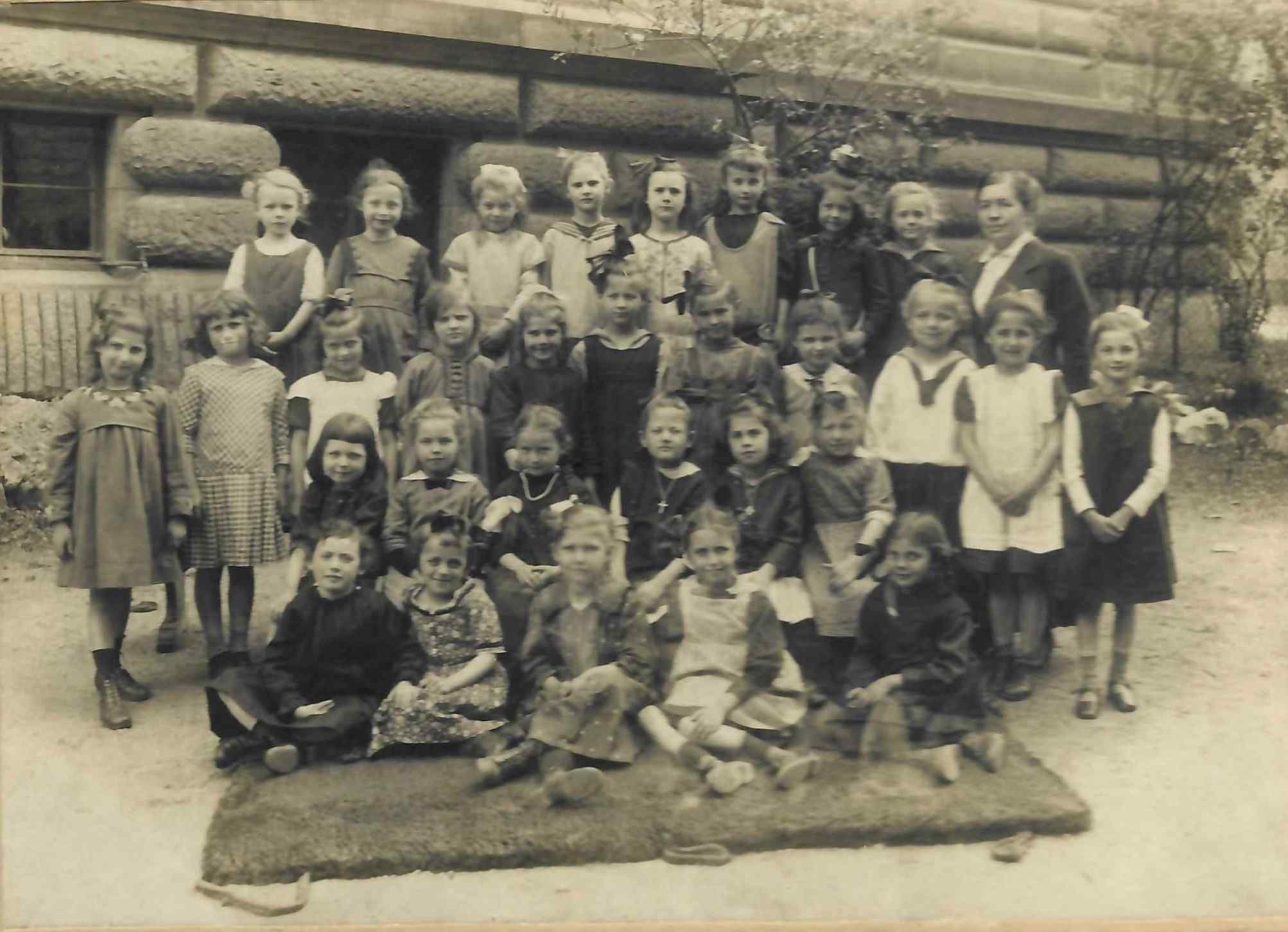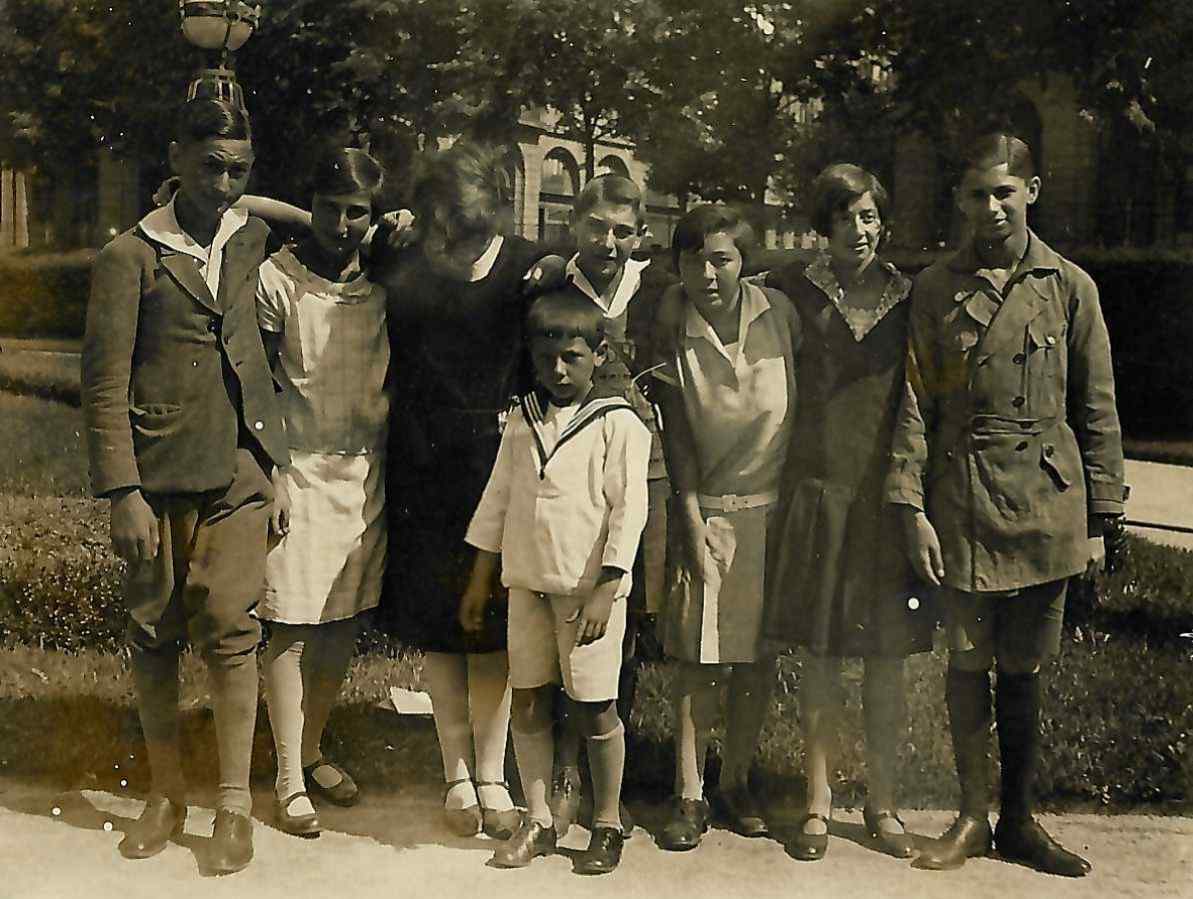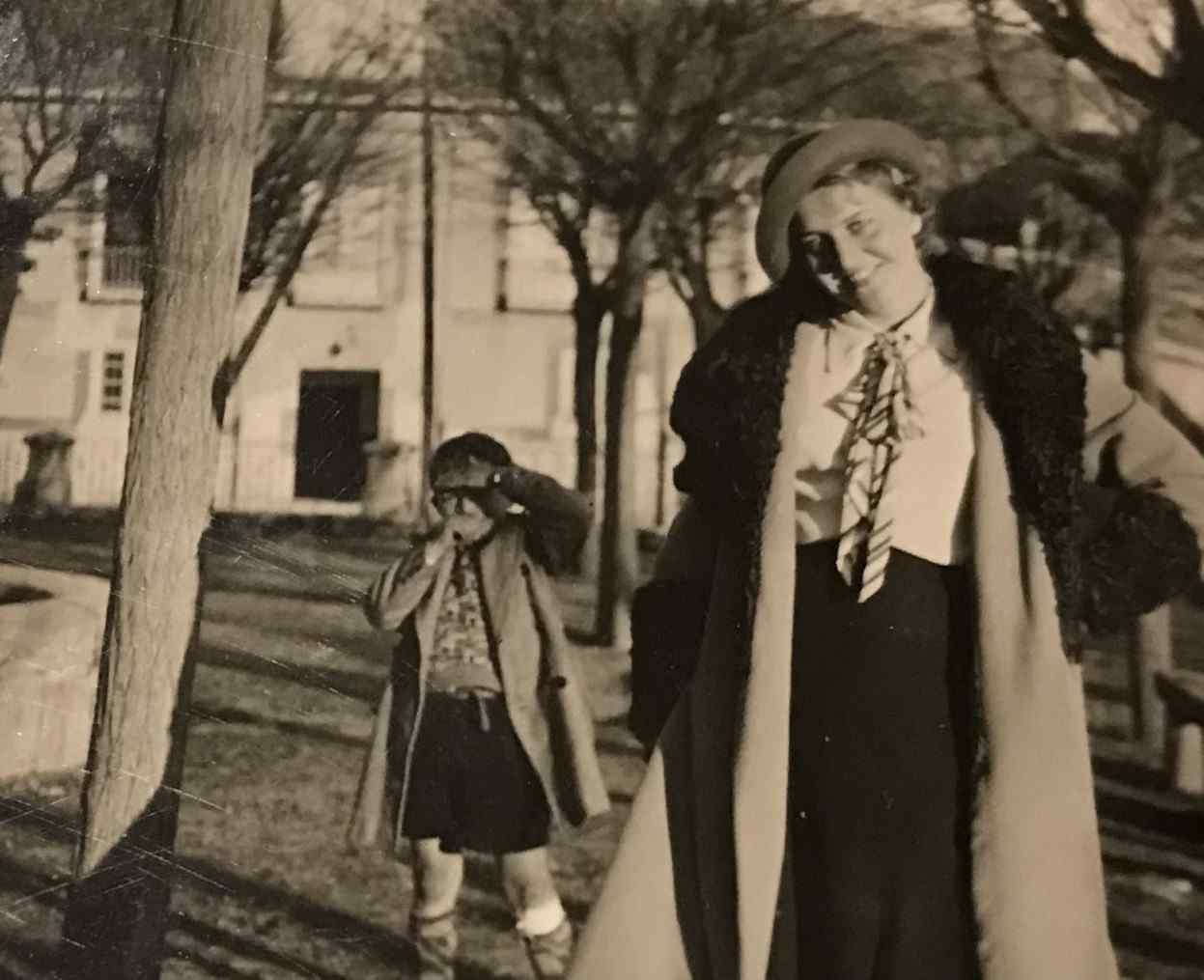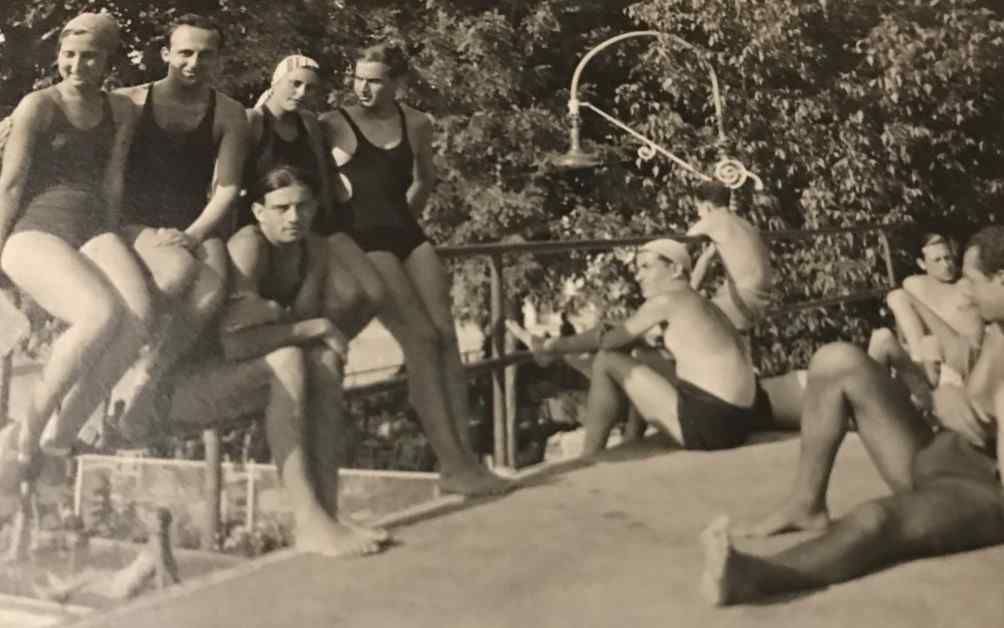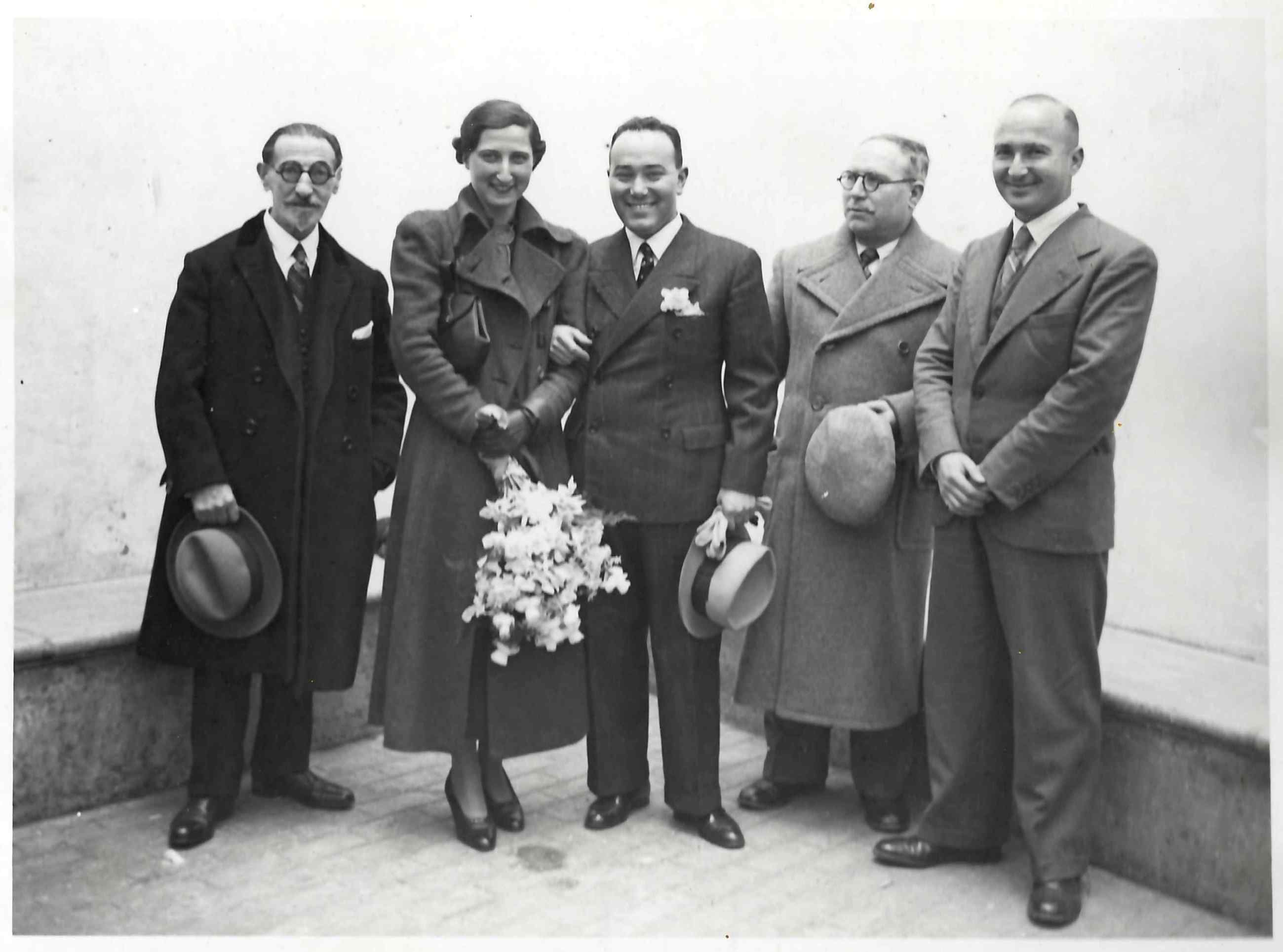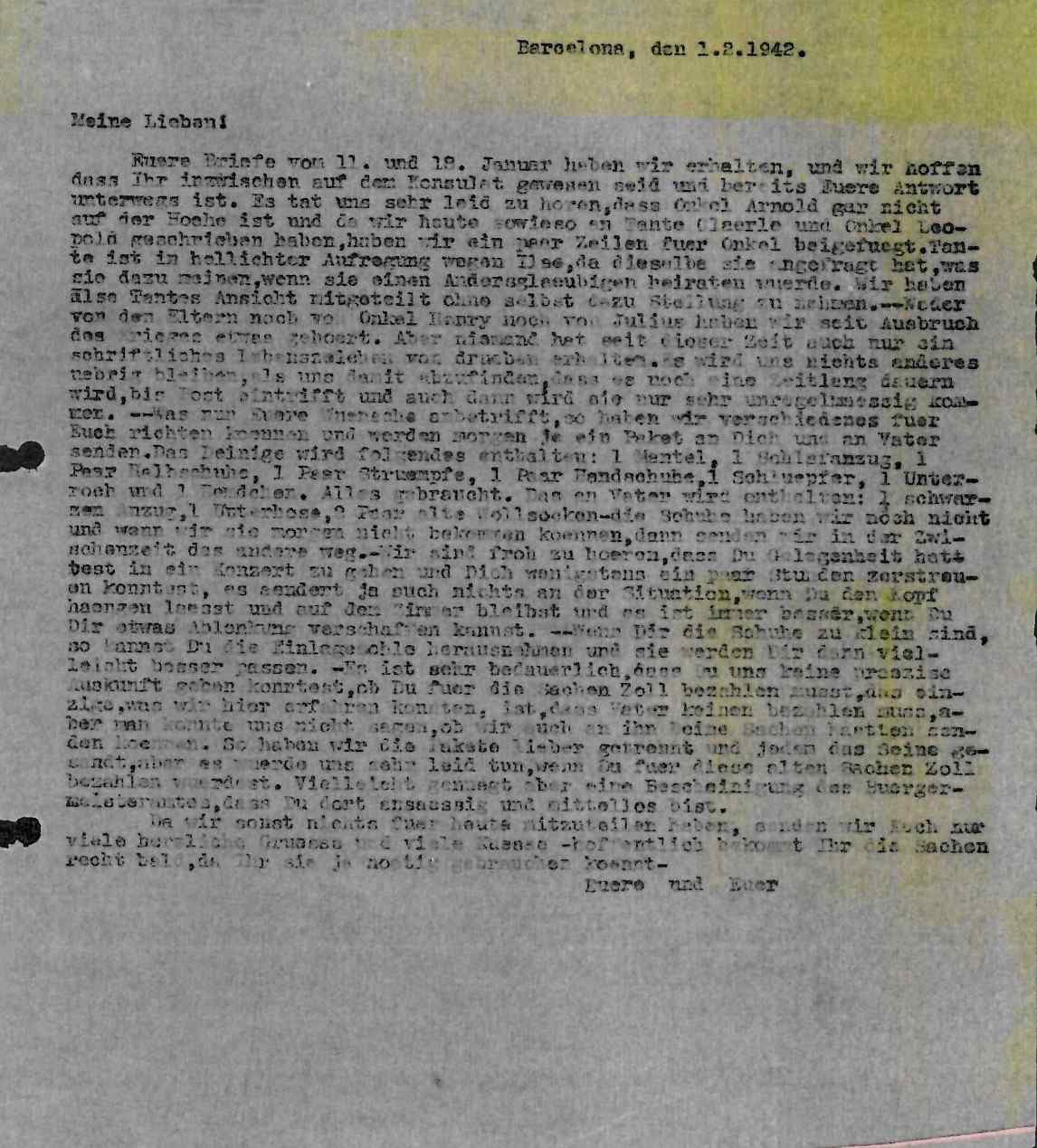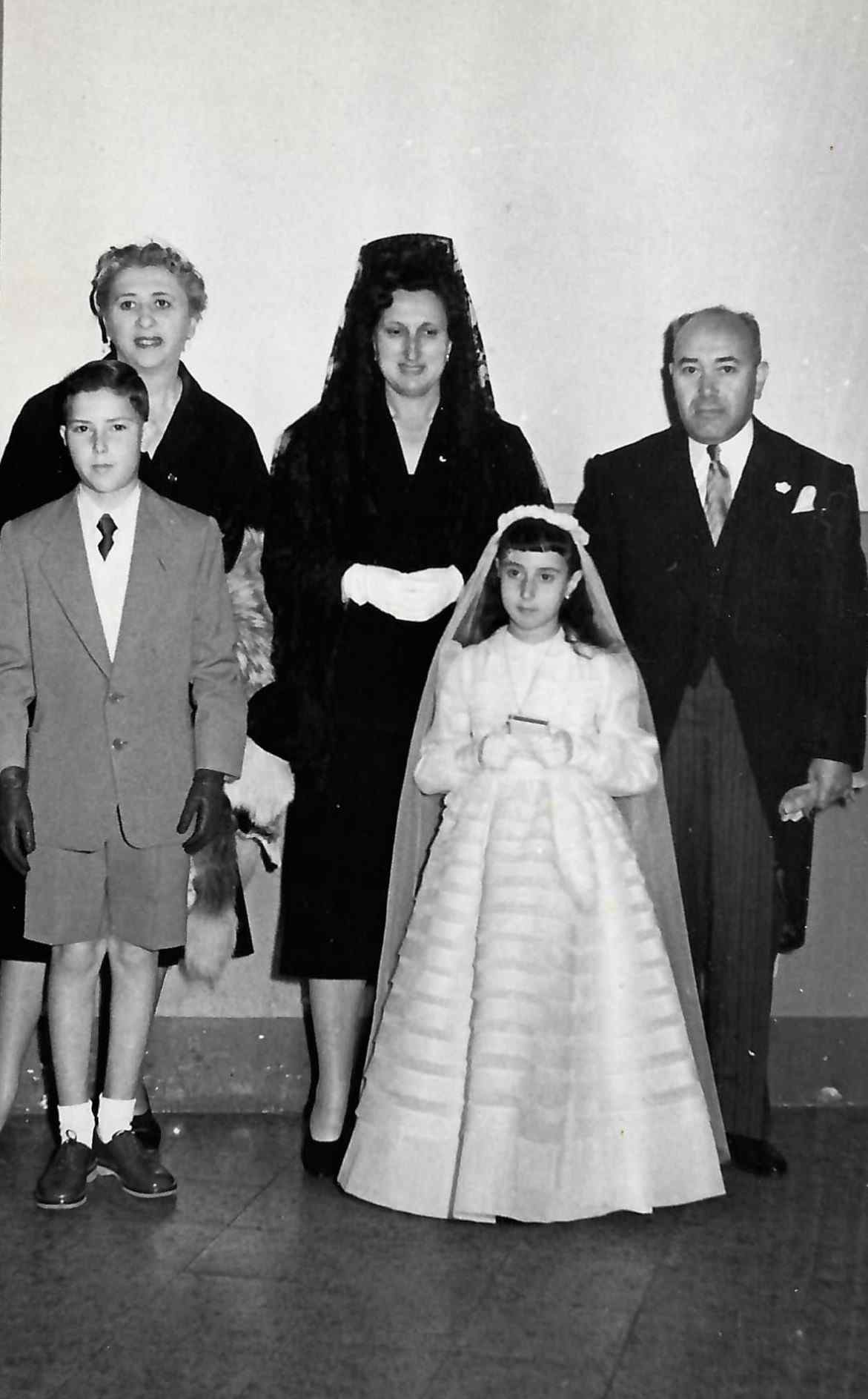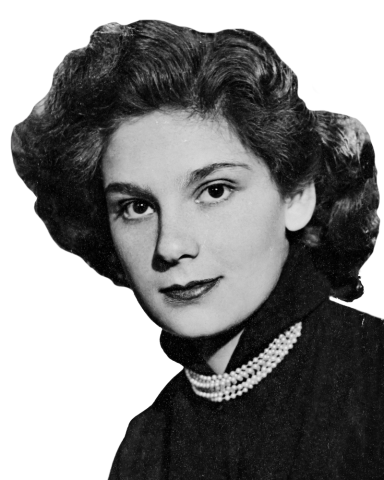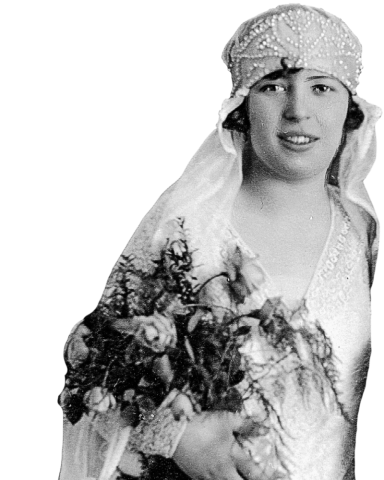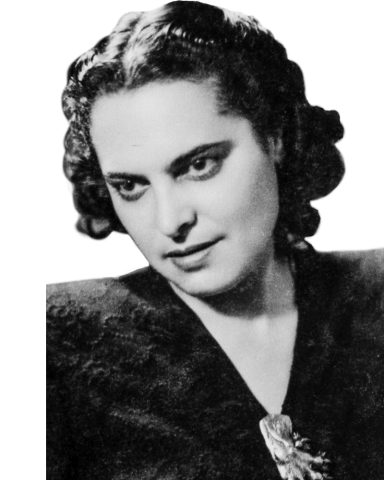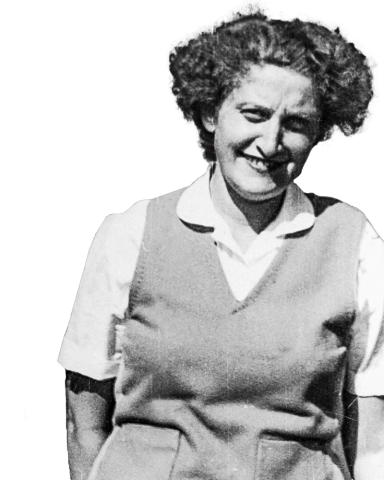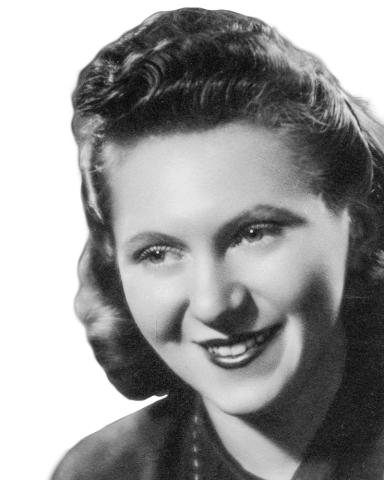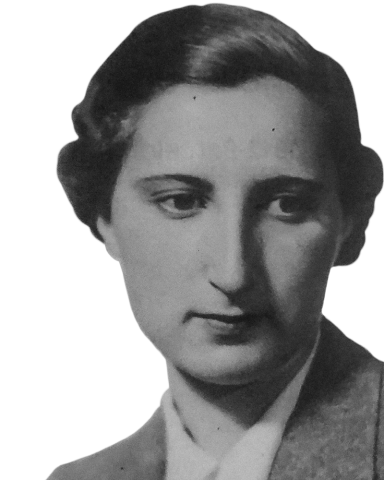
Rosl Heilbrunner
Surviving the Holocaust under a new identity: Throughout the first years of the Francoist Regime, in the shadow of persecution at the hands of the Gestapo in Spanish soil, Rosl Heilbrunner, with her husband and sons, tried to save themselves using a new identity.
Childhood
Two years before the outbreak of the First World War, on 10 May 1912, a blonde-haired, grey-eyed girl named Rosl Heilbrunner was born in Freiburg, the capital of the Black Forest. She was the first child of Eduard and Lina Heilbrunner, two fully assimilated German Jews who ran a business selling and distributing raw materials. Ten years later, still reeling from the devastating effects of the war, Julius, the younger of the two siblings, was born.
The family home was on the first floor of 40 Moltkestrasse, in the central Altstadt district, not far from the old synagogue. Rosl spent the early years of her life there, a happy and prosperous childhood that was to be tinged with the uncertainty that came with the outbreak of the First World War. Years later, Rosl would look back on those years with a smile, on her lasting friendships at school, mountain excursions in the Black Forest, walks in Freiburg, and regular visits to her maternal grandparents, the Levi family, who lived in Altdorf.
Rosl Heilbrunner at the primary school.
It was in this context of freedom and tolerance before the catastrophe that young Rosl Heilbrunner, after completing her primary education at a girls' school and her secondary education at the Höhere Töchterschule, enrolled at the prestigious Business School with the intention of studying international secretarial studies. In 1930, having completed her studies at the age of eighteen, she became an assistant to the lawyer Norbert Wolf, who worked for the public prosecutor's office in Freiburg. During those three years, from 1930 to 1933, Rosl enjoyed one of the best periods of her life, living to the full and building a world of her own in which all her dreams were still possible. However, this perfect world came crashing down when Adolf Hitler, the leader of the Nazi party, took over as chancellor on 30 January 1933.
Rosl Heilbrunner in vacation.
Rise of Nazism
In December 1932, Freiburg had a population of 98,752, of which 1,138 were Jewish, about 1.2 percent of the total population. Barely a month later, with the Nazi Party's rise to power, coexistence was a thing of the past and a process began – with no possibility of return – in which violent wrath would be unleashed on the enemies of the new regime: Jews, communists, anarchists, homosexuals, liberals, and so on. On 6 March, for example, high-ranking NSDAP militants forcibly hoisted a swastika flag on the balcony of the town hall without the mayor's consent. By the end of the month, the SA
Rosl Heilbrunner skiing at Felberg.
The next day, the local Freiburg newspapers published lists of names and addresses of shops that were no longer to be visited, including the Heilbrunner's. Eight days later, Mayor Bender was forced to resign after a smear campaign orchestrated by the Nazi newspaper Der Alemanne. Jewish businesses were increasingly exposed to persecution and suffered a drastic drop in sales as a result. In this context, the process of "Aryanisation"
1933: Spain
According to family photographs kept by the family, Rosl settled in León, Spain, in July 1933.
Rosl Heilbrunner working as au pair.
At the beginning of 1935, for reasons unknown, she decided to move to Barcelona. In the photographs we have, she appears elegant, in modern clothes, very German, posing in the Poble Espanyol, on the Costa Brava, in Sant Pol, in Tossa de Mar. She seems happy, carefree, ready to take on the world. It was in this Republican Barcelona, open and full of opportunities, that she met her future husband, Kurt Sontheimer, a German-Jewish man from Nuremberg who had settled in Barcelona in 1929 with the intention of working for the subsidiary of the family Lehmann porcelain factory.
Dory Sontheimer, daughter of Rosl Heilbrunner and Kurt Sontheimer:
"After that meeting in Sant Pol, Kurt and Rosl decided to get to know each other better. They took long walks through the streets of Barcelona; the Barcelona of 1935, troubled, difficult, Republican and still secular. They had plenty of time to discuss the situation in which they and their extended families found themselves. In Freiburg, many neighbours began to refuse to greet my mother's parents. Rosl's younger brother Julius, only thirteen, had to endure that humiliation. I know that my mother never stopped missing him. Years later, when I became aware of their relationship, I was struck by my mother's protective attitude towards her little brother, her only sibling."
Rosl Heilbrunner at the swimming pool.
While the boycott of Jewish shops was taking place, fuelled by the loudspeakers of the reactionary Spanish press, Rosl and Kurt let themselves be carried away by the excitement of falling in love: they went on excursions to Collserola, strolled along the beaches of the Barcelona coast, they went to the cinema, the theatre, the Palau de la Música, alone or accompanied by new friends.
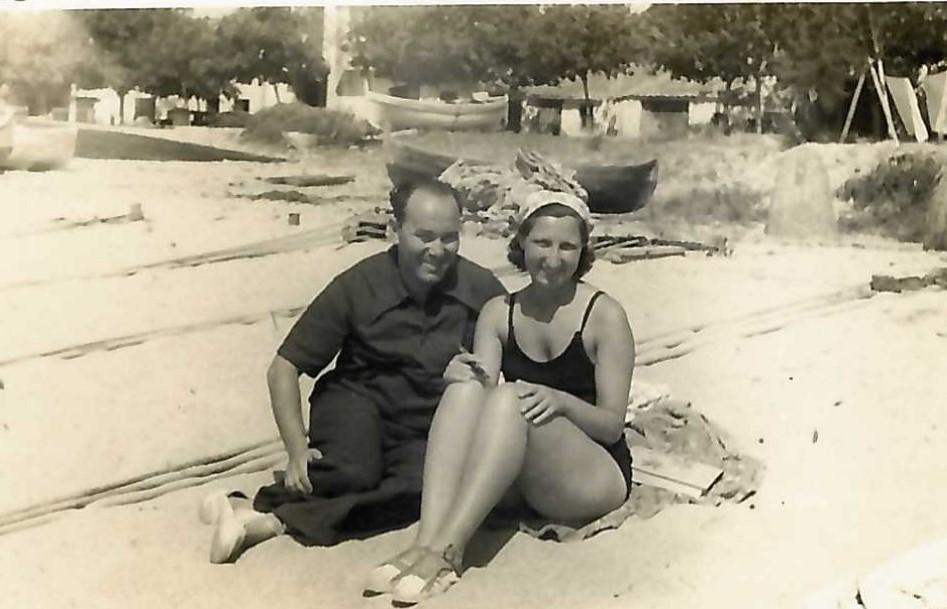
They look very happy in the photos, young and radiant, far from the threats that surrounded them. They even talked about getting married. But despite the overwhelming power of their new relationship, they could not help worrying about what was happening in Germany.
Spanish Civil War
On 18 July 1936, a military coup took place in Spain to overthrow the constitutional order of the Second Republic. The coup failed, sparking a bloody civil war that lasted three years.
Despite all the inconveniences of war, coupled with the fact that the family business, the Lehmann branch, was collectivised by order of the Militia Committee
"Dearest children,
[...] Life goes on here with great difficulty. The business is practically dead, and we are going to have to liquidate or sell it. Because of this year's accounts, and with these taxes they have forced us to pay, they are going to give us a token value to justify the transfer, which we will have to use if we are to get a visa for Julius [...]. Our visas, I imagine, will be impossible to obtain. If Julius manages to get to America, he may be able to do something from there. But I'm worried, because he's very young to be alone in that country, with all the freedoms and no one to advise him... Have you read the new decree? It really is madness."
Rosl Heilbrunner's wedding.
When Lina asked in the letter if they had read the new decree, she was most likely referring to the proclamation announcing the Law on the Alteration of Family and Personal Names, signed three days earlier on August 17, which required all Jews to adopt the names Sara for women and Israel for men. From then on, in the eyes of the German authorities, Rosl's parents would be Eduard Israel and Lina Sara.
Months later, on the night of 9-10 November 1938
"[...] The events of Wednesday night and Thursday morning are hard to put into words. [...] It was horrible. A night of terror [...] Thank God they didn't break into our house. [...] We hardly ever leave the house. The business is closed. Our financial situation is very bad [...]."
On January 26, 1939, Franco's troops invaded Barcelona, occupied the city and set up a new regime. From that moment on, the Jewish refugees still living in the city began to feel the pressure. Under the surveillance of Franco's police, who worked in collaboration with the Gestapo, they tried to remain unnoticed. Many, most of them stateless, were arrested and sent to Franco's concentration camps. In this context of extreme adversity, Max Sontheimer, Kurt's father, majority shareholder of Lemanos, S.A., the branch of the Lehmann factory in Barcelona, was removed from the company's board of directors by a minority shareholder, the German Óscar Stettiner, who eventually took control of the company with the support of the new regime. On May 11, the new law on border crossings, signed by Minister Gómez Jordana, was passed, preventing Jews from crossing the border without a permit. On August 18, 1939, the Sontheimers, aware of what was to come and with the pressing fear of being arrested and handed over to the Gestapo, began the process of converting to Catholicism.
WWII: Saving the family
Dory Sontheimer:
“Barcelona, 1940. There was no more war [Spanish Civil War], but there was no peace either. At least not in the hearts of Kurt and Rosl, who carried all the anguish and worry for their family on their shoulders. Despite everything, they continued to fight for their fledgling business [La Casa Pitón]. My mother, no longer working in the SEPU department stores, put all her energy into helping my father in the office while he travelled around Spain looking for representation."
On April 25, 1940, in deep anguish and anxious to leave Germany, Lina wrote a letter to Rosl and Kurt explaining her struggle to obtain visas that never arrived:
"We have applied for visas, but the answer is negative until we have our passports [...]. So many things are going round in my head, I keep thinking of so many things, and I also think that it can't be easy for you, but the most important thing is to be in good health.”
OnOctober 23, 1940, the same day that Franco met Hitler in Hendaye, the last Jews living in Freiburg were sent to Gurs concentration camp in south-west France. Four days later, Rosl and Kurt received the first news of their family in the form of a telegram. Two days later, Lina wrote from Barrack 16:
"Dearest children,
The telegram must have come as a shock to you, as you are still not aware of the changes that have taken place. On October 23, within a few hours, the order came that we had to leave our homes, and you can't imagine what that meant. We were only allowed to take what was absolutely necessary, and in all the chaos we didn't even take that. At ten o'clock on Wednesday night, we were put on a special train without knowing where we were going.”
While her parents battled to get visas for their freedom, Rosl tried to blend into Franco's ultra-Catholic society, hiding her Jewish identity, concealing any sign of her past, not drawing attention to herself, going to mass on Sundays, building a new world, Catholic and austere. Rosl lived two lives, one outside the home, where she kept a low profile without arousing suspicion as a typical Catholic woman, and the other in the intimacy of the home, where she devoted herself, body and soul, to freeing her parents from captivity, whatever the cost.
One month later, on August 15, Lina wrote another letter from Marseilles:
"My dear Rosl! My dear Conrado [Kurt]! In the midst of this dense atmosphere that surrounds me, I try to find a few moments of distraction to talk to you [...] What I would give to be with you. My only wish was to be with my children, but it now seems that this will not be possible. Even if we could get Spanish visas, there is nothing that can be done now. The chancellor is not giving out any forms. The sight of people leaving here in these goods wagons is indescribable [...].”
Dory:
"A few days later, Lina and her husband were transferred to Camp des Milles
Finally, on September 7, 1942, after several days of being crammed into a wagon, Eduard and Lina arrived at the Auschwitz-Birkenau concentration camp. It was there that they were murdered. The day before, Rosl had written them a letter that they would never read:
"Dearest Mum and Dad,
We have not heard from you since your last letter dated August 30 and, as you can imagine, we are very worried. I want you to know that Julius received your letter dated August 3 and that he went to Washington that same week to try to get another visa. We hope that he will be successful, and we must hold on to that. We have spoken to a man who knows a great deal about these things, and he has told us that if all goes well, you will get your visa very soon [...]. I hope you received our last letter. That's all for today."
Rosl's letter to Lina. Monday, February 1st.
Immersed in a suffocating atmosphere, with no news of Lina and Eduard and fearing that they might be arrested at any moment by Franco's police, the Sontheimers officially changed their surname on November 10, 1943, becoming the Sont family. They were erasing the traces of their past.
Francoism and Post-World War II
Dory:
"I was born in Barcelona after the Second World War. I have memories of a happy childhood and adolescence. We were a very small clan, which I found hard to understand in that Spain of large families. When I asked why, I always received the same blunt response: "They died in the war." Nothing more.
Dory Sontheimer's First Communion, Rosl's daughter.
We complied with all the religious norms stipulated by the church and the Franco regime. We went to mass on Sundays and on important religious holidays. I never, never had the feeling that they were hiding anything, but I did notice that what was important at home were human values, ethics and morals. Talking about politics was forbidden. As the years went by, religious obligations gradually faded.
While carrying this invisible burden of fear and powerlessness, my mother continued to live, clinging to her new identity with all her might. She went out with her friends, enjoyed the Wednesday bridge games, the evenings at the Palau de la Música and the Liceu, and the gatherings at her home, where she was a good hostess who loved to set the table, cook her German dishes, especially pastries, marmorkuchen, apple pie, etc. Life had to go on. How could we forget our summers on the Costa Brava, in Sant Feliu de Guixols, in our apartment on Rambla Vidal.
At the age of 18, my parents felt it was time to tell me about the family's Jewish origins. I couldn’t understand why they were so secretive, nor why they were afraid of the possibility that I might tell others. They asked me to keep quiet, and I respected that.
My father died of a heart attack in 1984. From that moment on, my mother started to deteriorate physically and mentally. It was then that I began to see the burden she had been carrying all those years, a burden that spoke of a painful history she could not let go of and had only shared with her husband. In the last years of her life, she had a series of strokes that left her in a near coma, which brought the ghosts of the past back to the surface. All that she had suffered, all the control she had over her Jewish identity, disappeared completely, leaving the door open to her past. I remember well those moments of agony when she cried out in her mother tongue: 'The Gestapo will come and take us away!'
After her death in 2002, sealed boxes I had never seen before appeared in the attic of her house. When I opened them, I immediately realised that the contents of those seven cases were directly related to the enormous weight she had carried for years.
Now I understand many things: the reason why my father asked to change his surname from Sontheimer to Sont – which I have now reversed – why my mother changed her second surname from Levy to Ley, and the reason for the silence and the fear that surrounded everything.
I often think of her, of the strength she showed in facing life, of her ability to survive and, above all, of what it must have been like not to have been able to save her parents, a trauma from which I am sure she never recovered. She has left me an impressive legacy and some unique lessons.
Thank you, Mum. RIP. NEVER AGAIN”
